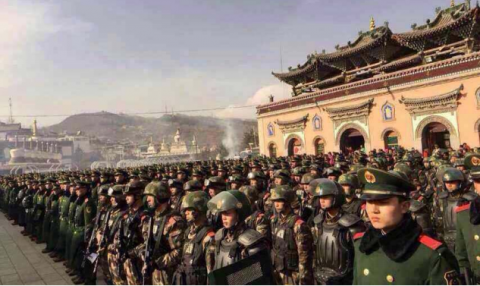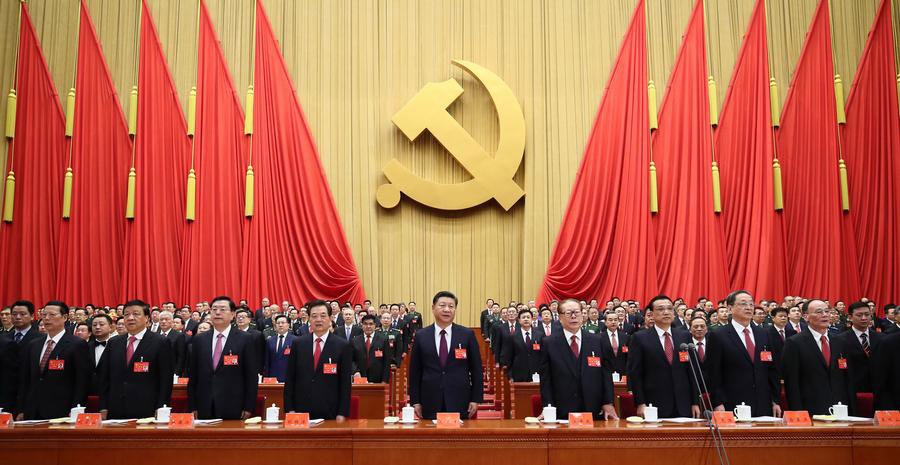Tibetet Segítő Társaság Sambhala Tibet Központ
Tibet Support Association Sambhala Tibet Center
székhely / telephely H-Budapest I. Attila út 123..
(00-36) 70 431 9343 (00-36)70 944 0260 (06-1)782 7721
sambhala@tibet.hu www.tibet.hu tibetpress.info
Facebook/Sambhala Tibet Központ Facebook/Tibett Segítő Társaság
MagnetBank/ 16200010-00110240
IBAN/HU94 16200010 00110240 00000000 SWIFT/HBWEHUHB
(1%) adószám/ 18061347-1-41
nyitva tartás/hétköznap 12.00-20.00 hétvégén előadás függő
» Retro» Tibeti művészet» Interjú» Levelek» Tibet Press» Tibet Press English» Dharma Press» Human Rights» Világ» Kína» Magyar» Ujgur» Belső-Mongólia » KőrösiCsoma» Élettér» Határozatok» Nyilatkozatok» tibeti művészet» lapszemle.hu» thetibetpost.com» eastinfo.hu» rangzen.net» ChoegyalTenzin» tibet.net» phayul.com» DalaiLama.com» vilaghelyzete.blogspot.com» Videók» Linkek» TibetiHírek» Szerkesztőség
A Kínai Kommunista Párt erőfeszítései a tibeti buddhizmus ellenőrzésére
2018. június 19./Freetibet.org/TibetPress
Jelenleg csak angolul olvasható. Magyarul később.
eredeti cikk Xi Jinping told the CCP National Congress last year that he intended to increase the party’s grip over religion and oppose “erroneous” ideologies
Xi Jinping told the CCP National Congress last year that he intended to increase the party’s grip over religion and oppose “erroneous” ideologies
Last October one of the most significant events in recent Chinese history took place: the 19th National Congress of the Chinese Communist Party. While Tibet was locked down under China’s tightened security measures, in Beijing President Xi Jinping was taking centre stage. There he became the most powerful Chinese leader since Mao Zedong, according to some experts, by having his political ideology added to China's constitution, as well as an amendment aboloshing term limits, which effectively gives him the ability to be leader for life.
During the Congress, Xi delivered his vision for the future of China in a marathon three-hour speech. Among its many themes, the speech outlined how the Chinese Communist Party (CCP) would guide everything from China’s economy to its culture and morality. He said that Chinese culture had to be revitalised, rejecting “erroneous” ideologies and promoting religion that is “Chinese in orientation”.
Religion in Tibet was already tightly regulated before the National Congress, with monks and nuns required to practice their faith within set boundaries and religious institutions and subject to regular state interference to ensure their loyalty to the CCP. However, following the National Congress, Free Tibet and its research partner Tibet Watch have received information of new and increased pressure on Tibet’s already limited religious freedom.
MONASTERIES LOCKED DOWN
Following the National Congress, there was a mass mobilisation of CCP cadres, with more than 20,000 party members sent to local villages across the Tibetan Autonomous Region (TAR) to educate locals about these new government policies.
A further 7,000 party members and government officials were permanently stationed in monasteries across the TAR, tasked with spreading the message to the resident monks and nuns. Last month, TAR Party Secretary Wu Yinjie inspected Tsurphu and Neynang monasteries in Lhasa city to ensure religious activities were in line with religious laws and in harmony with "socialism with Chinese characteristics".
The party members were picked from the local population based on the strength of their loyalty to the CCP.
Tibet's monasteries have been a source of resistance against Chinese rule within Tibet ever since the occupation of the country in the 1950s. Despite varying degrees of repression over time, and attempts to eradicate Tibetan religious and cultural identity during Mao’s Cultural Revolution, the influence of Tibetan Buddhism remains strong.
Since the late 1980s the CCP has pursued a number of policies designed to curb resistance within Tibetan monasteries, such as so-called "patriotic re-education" campaigns. These excercises in brainwashing aim to transform Tibetan national identity into Chinese identity and to eradicate Tibetan loyalty to the Dalai Lama.
The following video was smuggled out of one such "patriotic re-education" class, in which nuns were forced to sing songs proclaiming Tibet as part of China.
SPREADING IDEOLOGY
The increased CCP presence across Tibet’s monasteries has been accompanied by a raft of new regulations. Measures introduced this year require all monks and nuns to learn the core values of Chinese Socialism. Further orders issued last month by Chinese authorities in Lithang County, south-eastern Tibet, saw several senior monks evicted from the local monastery and prohibited from teaching in the surrounding areas. Families who had previously sent their children to the monastery to study also faced pressure from local authorities to withdraw them, despite the limited resources in local schools. This raises concerns that these measures have been put in place to restrict Tibetan Buddhism rather than improve educational standards.
New examinations appear to be becoming commonplace in Tibet's monasteries as part of efforts to ensure that Tibetan Buddhists are loyal to the Chinese government. For example, on 26 April this year, China's United Front Work Department (the CCP body responsible for overseeing the affairs of ethnic and religious minorities) tested 100 monks at Gaden Monastery on Chinese law. The legal examination included questions on Marxism, the newly revised constitution of the PRC and "Xi Jinping Thought on Socialism with Chinese Characteristics for a New Era".
A similar legal examination exercise was undertaken by the United Front Work Department on 21 March at Sera Monastery , where 461 monks attended, as well as two other major monasteries, Depung and Gaden.
According to Penpa Tsering, the Director of the Missionary Management Committee of Sera Monastery, these exams have been introduced to increase knowledge of the legal system and ensure monks obey rules and regulations.
Some of these exams have taken the form of a competition. In May 2018, monasteries in Themchen county, eastern Tibet, were selected for ideological education by the local United Front Work Bureau, which set up a contest in Buddhist centres involving 27 representatives from nine monasteries and over 100 observers.
The competition assessed loyalty to the CCP in a number of areas from religious affairs, policies, law and patriotic education. Prizes were awarded to the best performers in these fields. Drukqung, Dratsa and Bongtag monasteries were awarded first, second and third prizes respectively for their performance and Sengmo monastery was rewarded for establishing strong party roots.
FIGHTING SEPARATISM
The motive behind these measures – fully incorporating Tibet into the People’s Republic of China – was laid out in a recent article in the Global Times, an official media outlet of the Chinese government.
The article detailed how, since March of this year, China's major religious associations have been organising activities to promote the study of the Constitution of China and the latest amendments to it as part of a process of “reinforc[ing] national identity”.
Religious associations throughout China have hosted lectures by religious and legal experts, Party school professors, police and judges to explain the newly amended Constitution (pictured above). These lectures have been followed up with examinations to cement the idea that "national laws are above religious rule”. The scale of the program was referred to by one source as “unprecedented since 1949”, the year of the revolution that brought the CCP to power.
Quoting the pro-government Tibet Daily, the article noted that so far 25,000 religious staff in Tibet have been tested, 95 percent of whom passed. It noted that:
"Study of the Constitution was closely integrated with local efforts to combat separatists and safeguard stability and border construction."
RESISTANCE
The CCP has always made it clear that they view Tibetan Buddhism as being inextricably tied to Tibetan resistance to the occupation. Over the years, their efforts to control and undermine it have ranged from intimidating military deployments outside monasteries to arresting monks and nuns, from evicting Tibetans from their monasteries to imposing rules on the reincarnation of Tibetan lamas, including the Dalai Lama.
The measures imposed on Tibet since the October National Congress demonstrate renewed determination on the part of the CCP to wrestle control over Tibet’s religion. Free Tibet nevertheless continues to receive reports of monks, nuns and their communities pushing back. Despite its overwhelming military force, the CCP has so far been unable to take control of Tibetans’ hearts and minds.
